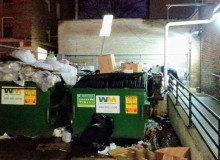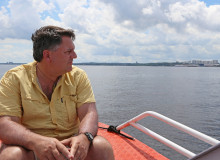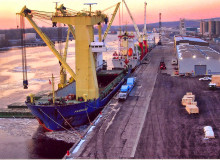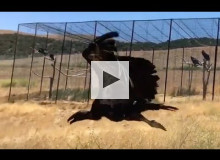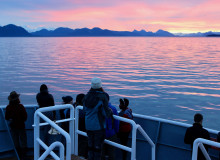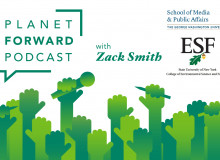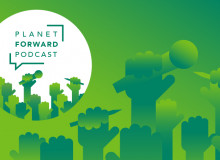Sustainability
Planet Forward Senior Correspondent | American University
The beloved Atlantic Puffin is a symbol of conservation success. After the birds disappeared from islands along the coast of Maine, victims of feather hunters, biologist Stephen Kress restarted colonies using innovative techniques.
Kansas State University
Sustainability and food used to be separate conversations. In the next story in the series, Kansas State's Olivia Bergmeier explores how sustainable ag is now a joint conversation — and both consumers and producers are talking together.
Planet Forward Senior Correspondent | University of Wisconsin-Madison
My partner and I have been dumpster diving for a little over a year now. It sounds gross — and it certainly can be — but we've found mostly benefits to this uncommon practice.
Planet Forward Correspondent | SUNY-ESF
SUNY College of Environmental Science and Forestry sustainability expert Mark Lichtenstein discusses the social equity aspect of sustainability, which is often overlooked when discussing environmentalism.
Planet Forward Correspondent | SUNY Plattsburgh
Marine group works with ports to provide cleaner air and waterways through voluntary environmental certification program, offering economic and community benefits.
Arizona State University
In 1987, condors were on the brink of extinction. Three decades later, the California condor is slowly rebounding.
Planet Forward Senior Correspondent | Cornell University
Next in our Alaska series: While many still find climate change up for debate, perhaps the way to engage and persuade these individuals is by focusing on its effects in their own communities rather than in far away places.
The George Washington University
Storyfest 2018 winners traveled to Alaska in June, exploring its ecosystems and finding the stories of sustainability. In story two of our series, watch a video documenting the resilience found in the 49th state, and read Alex's take on the trip.
Planet Forward Podcast
Insects have been part of human diets around the world for centuries — but not in the U.S. Is it time for Americans to consider eating insects to save the planet?
Founding Director, Planet Forward
In partnership with SUNY’s College of Environmental Science and Forestry (ESF), today we launch the first-ever Planet Forward Podcast with our host, Zack Smith.

